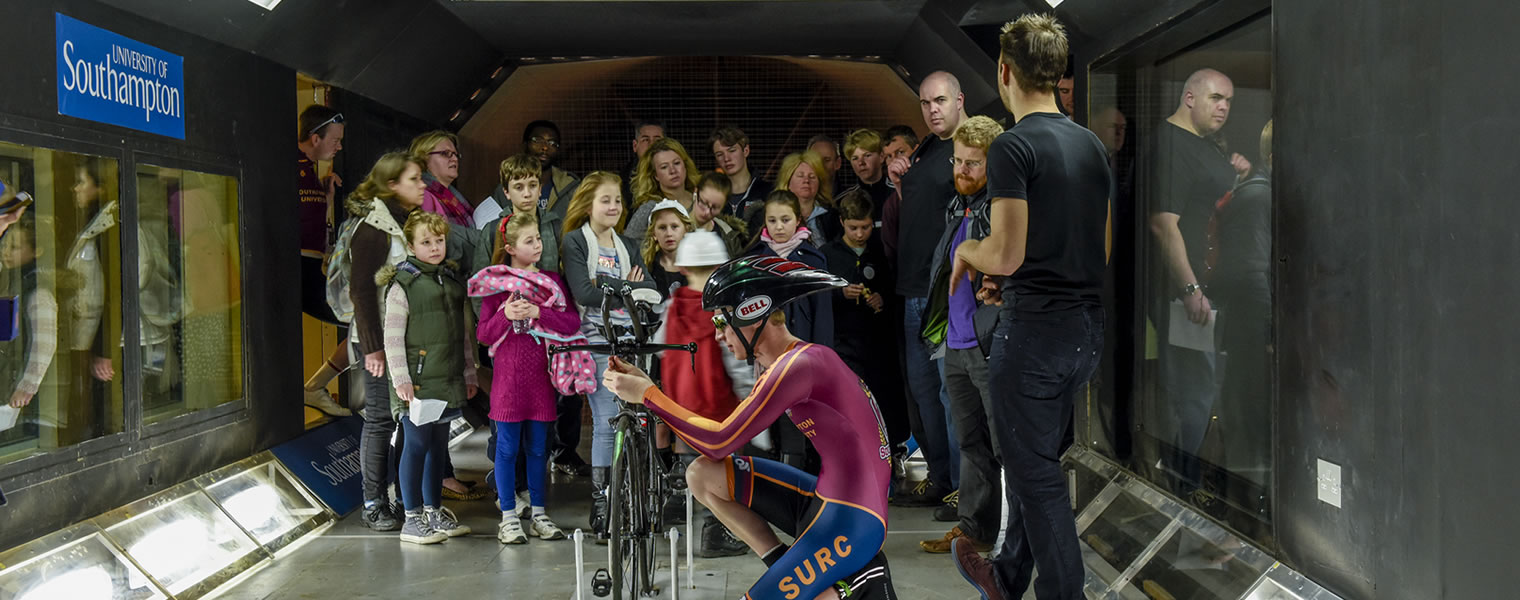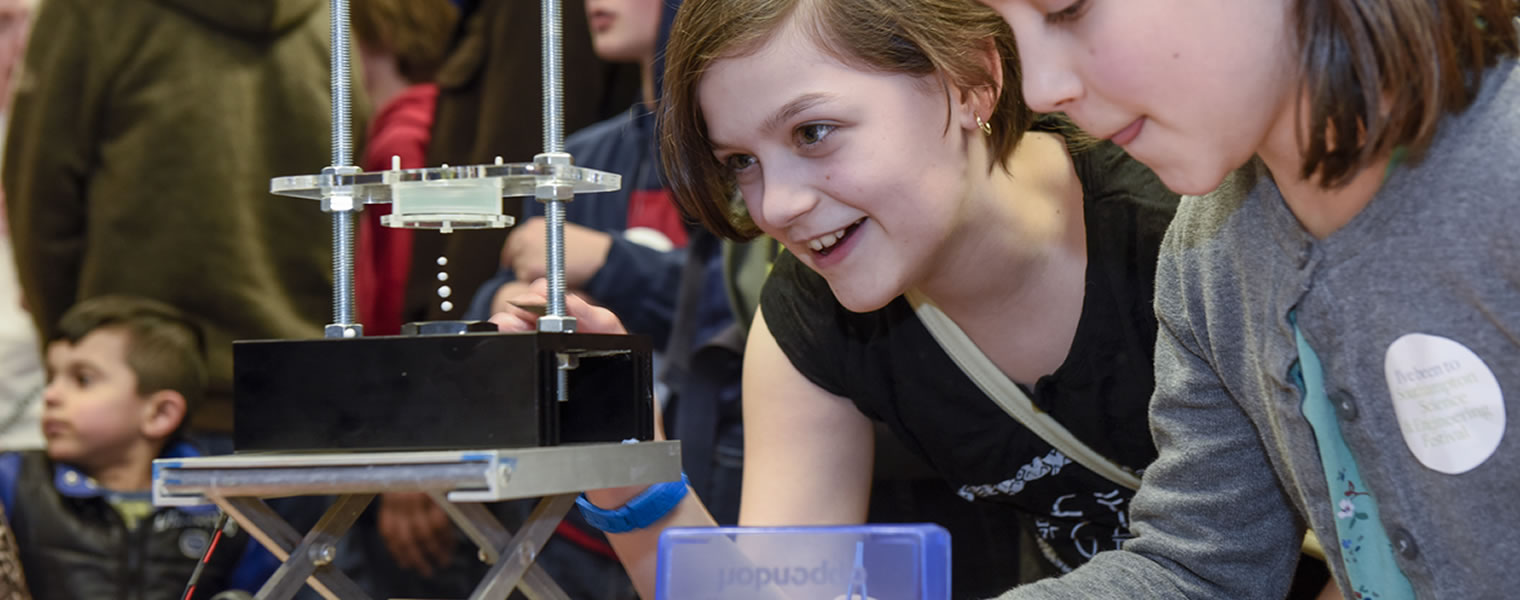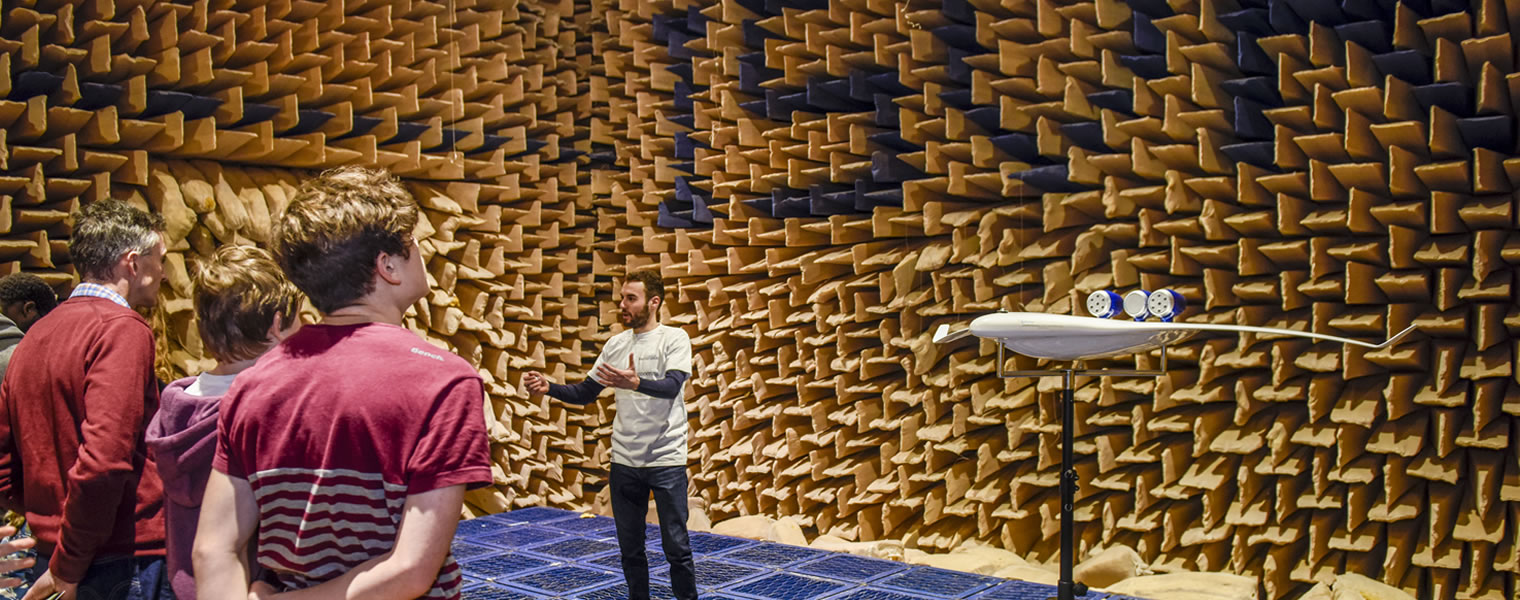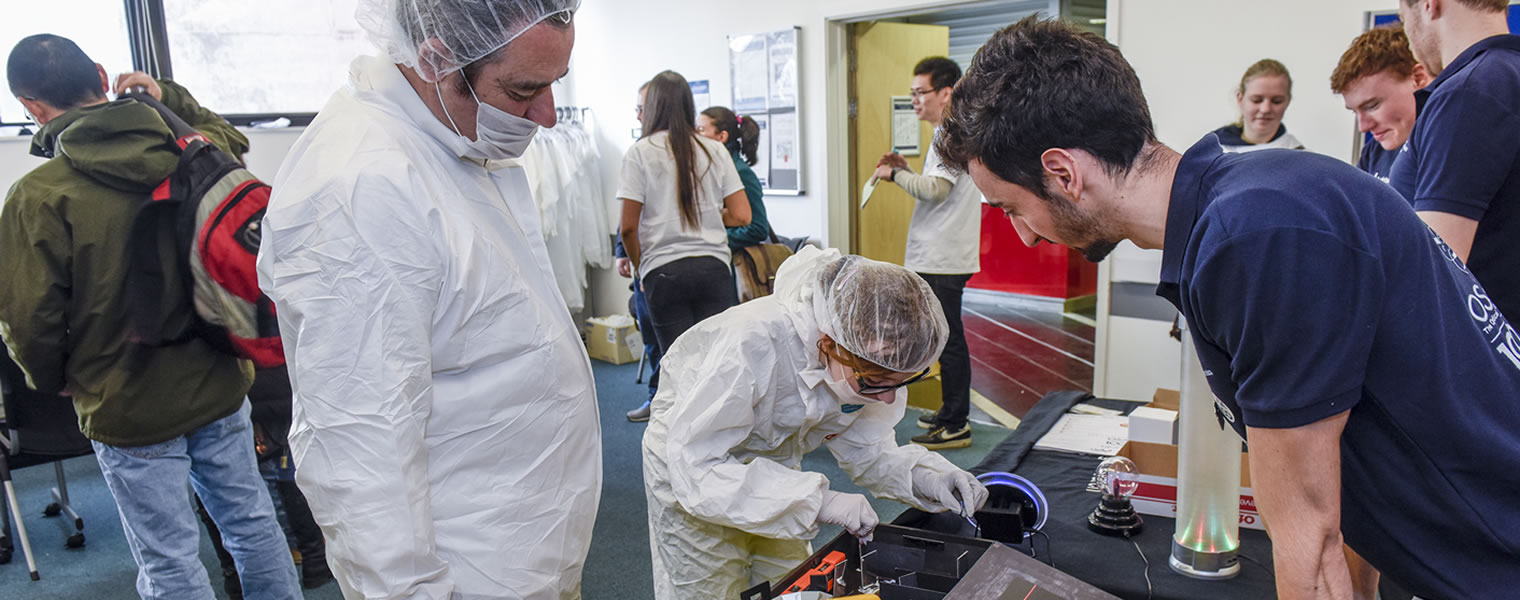Hartley News Online Your alumni and supporter magazine
Public engagement is becoming an integral part of the work of researchers here at Southampton, with staff and students running events all year round to educate, inspire and make new connections.
However, sharing our research with the community is far more than just entertainment for the public. Southampton Connects Staff explores how our researchers are connecting with the community to collaborate, recruit and create a lasting impact.
Last month, the 15th Southampton Science and Engineering Day took place as the finale and highlight of the Southampton Science and Engineering Festival (SOTSEF). Already the biggest event of its kind on the south coast, Science and Engineering Day sees thousands of members of the public descend upon our Highfield and Boldrewood Innovation Campuses to speak to our researchers and students, experience our research facilities first-hand, and explore the University itself – all for free. Last year the day saw around 6,000 people attending, and this number increased again this year this rose to over 7,000.
The event is undeniably popular and, with other similar events taking place throughout the year, there is evidence that public interest in research taking place here at Southampton is increasing.
Dr Steve Dorney, Director of the Public Engagement with Research unit (PERu), explained that engagement events such as SOTSEF are thriving in a wider context of festivals and cultural events with Universities as key partners.
“The public is genuinely interested in what we do at universities, and in what research actually looks like as a day-to-day job. That’s one side of public engagement.
“The other side is that researchers want to talk to the world about what they do, to share knowledge, to increase impact and to do better research. Good public engagement is about maximising mutual benefit between researchers and public audiences.”
The demand from both sides for events that bring our experts together with the wider public is increasing, and more events are being created to meet that demand. In May, the national science festival, Pint of Science, will be returning to the city of Southampton, and the Human Worlds Festival takes place in the autumn, while our researchers tour the country with the Bringing Research to Life Roadshow, appearing at various events and festivals, including last year’s BBC Countryfile Live. One of the highlights of this seventh year of the Roadshow will be the internationally-renowned Cheltenham Science Festival in June.
Making our research accessible and turning it into an inspiring and engaging experience for the public is significant and valuable – but events such as Pint of Science and SOTSEF are not just about sharing ideas. In fact, public engagement with research is a vital area of focus throughout the University for a number of reasons.
Recruiting future students and staff
Connecting with the wider community regarding research is not only putting the University on the map for many; it is also an essential recruitment tool.
Events such as the Science and Engineering Day provide a window into the world of higher education and research in a different style to our Open Days, showcasing our world-class facilities and research to a community of all ages and backgrounds. Although recruitment is not the explicit aim of these events, their importance and potential for attracting future students and staff is obvious. Recruitment and Outreach have a stand at the Science and Engineering Day. The team continue to run a number of initiatives and awards that will harness the creativity and imagination of school students and connect them with, for example, staff and students in Engineering and the Environment.
Impacting our own research
Furthermore, the dialogue between researchers and the public is mutually beneficial; not only is the wider community learning about real-world issues and groundbreaking discoveries, but researchers are able to utilise engagement events to inform their own research, improve their communication skills and network with colleagues, industry and potential research partners in an informal environment. Public engagement can create research collaborations that may not be possible otherwise.
REF, strategy and reputation
There is a clear connection between public engagement activities, reputation, strategy and impact. PERu was formally created in August 2016 following a series of ad hoc arrangements, in response to the Research Excellence Framework (REF) and encouragement from Research Councils UK (RCUK).
“Public engagement is a route to impact and it’s increasingly important,” says Steve “As a university, we must demonstrate the value of our public expense, and this is a great way of doing it.”
Alongside running community engagement events, the unit works to encourage and support researchers to engage with chosen audiences through funding opportunities, advice and training, and managing collaborations. PERu are working closely with other teams including the Doctoral College, Research and Innovation Services (RIS), Estates and Facilities and the faculties.
The team are also exploring evaluation methodologies.
“We’re developing an evaluation toolkit in collaboration with RIS, which will be available for all researchers. Evaluating public engagement is a crucial sector-wide issue that everyone’s thinking about, especially for REF.” says Steve.
Public engagement is therefore a vital tool not only for sharing ideas and discoveries, but also for the reputation of the University. We are growing our world-class research environment, for REF and for the University’s own internal strategy, impact and growth, shaped by the 10 Year Plan.
With so many different elements and benefits to public engagement, for both the community and the University, it is clear that there is a bright future for all involved. It is the Unit’s hope that engagement will eventually become fully embedded into research activity across Southampton; it should become integral to what our researchers do.
Read more about the Public Engagement with Research unit’s work, collaborations and events on their website.
Pint of Science is taking place across the city of Southampton from 15-17 May. Tickets can be purchased now from the Pint of Science website.
Have your say
The poll in this article is optional and anonymous. The polls are covered by Ethics 17326.



